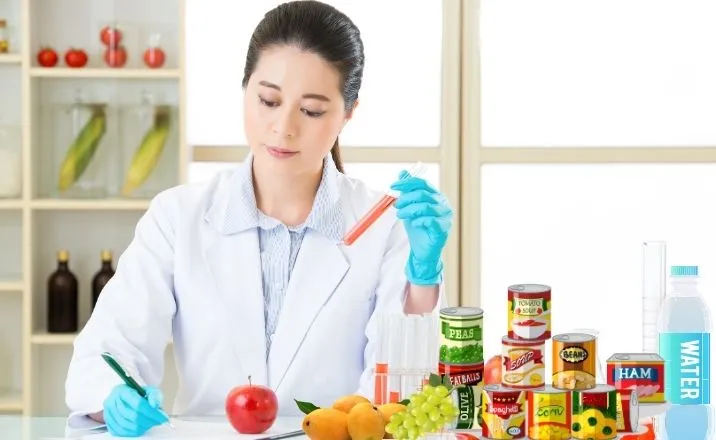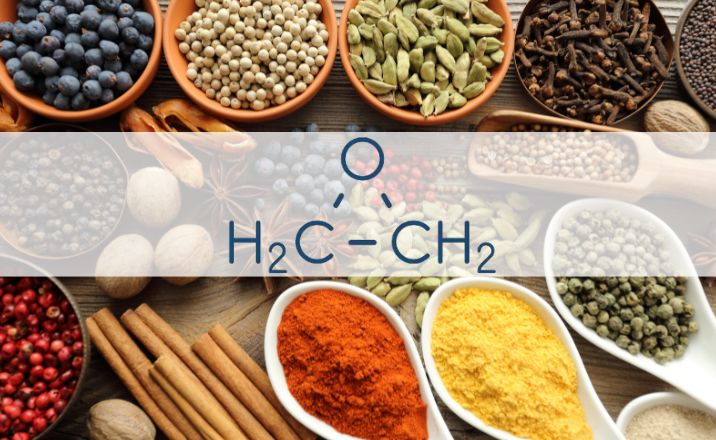GMO (Genetically Modified Organisms) Testing: Ensuring Compliance and Food Safety with Envirocare Labs

GMO Testing plays a crucial role in the global food supply chain, ensuring compliance with stringent regulations and consumer safety. Genetically Modified Organisms (GMOs) have been part of agricultural advancements for over two decades, yet concerns persist regarding their safety, environmental impact, and legal compliance. This has led to increasing demand for accurate GMO analysis. Envirocare Labs, an NABL-accredited testing laboratory, offers reliable GMO testing services to help businesses maintain food authenticity and regulatory compliance
What Does GMO Stand For?
GMO stands for Genetically Modified Organism. These organisms have undergone genetic modification through biotechnology, introducing specific traits such as herbicide resistance, pest tolerance, or enhanced nutritional value. The most common GMOs (Genetically Modified Organisms) are agricultural crops, including soybeans, corn, cotton, and canola.
What is GMO Testing?
GMO (Genetically Modified Organisms) Testing is the scientific process of detecting, identifying, and quantifying genetically modified content in food, feed, and agricultural materials. This testing is crucial for:
✔ Regulatory Compliance (FSSAI, USDA, EU, and other international standards)
✔ Non-GMO (Genetically Modified Organisms) Labeling Verification
✔ Supply Chain Transparency and Quality Control
✔ Ensuring Food Safety and Consumer Choice
At Envirocare Labs, we utilize advanced PCR-based GMO (Genetically Modified Organisms) testing methods to help manufacturers, retailers, and exporters meet strict regulatory requirements and maintain product integrity.
What is GMO Analysis?
GMO (Genetically Modified Organisms) Analysis refers to the detection, identification, and quantification of genetically modified DNA sequences in food and feed samples. Our laboratory uses state-of-the-art techniques, such as Real-Time Polymerase Chain Reaction (RT-PCR), to ensure precise results. GMO analysis (Genetically Modified Organisms) can be classified into:
Qualitative GMO Testing: Determines the presence or absence of GMOs (Genetically Modified Organisms) in a sample.
Quantitative GMO Testing: Measures the exact proportion of GMO (Genetically Modified Organisms) content within a sample.
Event-Specific GMO Testing: Identifies specific GMO (Genetically Modified Organisms) traits present in the sample.
What is the GMO Screening Method?
GMO (Genetically Modified Organisms) Screening is the first step in GMO (Genetically Modified Organisms) analysis, designed to detect commonly used genetic elements introduced into genetically modified plants. It is an efficient and cost-effective approach to determining whether a sample contains GMOs (Genetically Modified Organisms). The commonly screened markers include:
CaMV 35S Promoter – Derived from the Cauliflower Mosaic Virus and widely used in GM crops.
NOS Terminator (T-NOS) – A genetic sequence from Agrobacterium tumefaciens.
FMV 34S Promoter – A viral sequence from the Figwort Mosaic Virus used in some GM plants.
Once a positive GMO (Genetically Modified Organisms) detection is made, further event-specific testing is conducted to determine the exact GMO (Genetically Modified Organisms) trait and its level of presence in the sample.
Why is GMO Testing Important?
Regulatory Compliance – Many countries have strict GMO (Genetically Modified Organisms) labeling laws, such as the EU’s 0.9% threshold for GMO labeling.
Product Integrity – Ensures non-GMO (Genetically Modified Organisms) or organic product claims remain valid and contamination-free.
Consumer Trust – Provides transparency and allows consumers to make informed food choices.
Risk Management – Prevents legal and trade risks by ensuring adherence to global safety and labeling standards.
Environmental Impact Monitoring – Helps in assessing unintended effects of GMOs (Genetically Modified Organisms) on biodiversity and ecosystems.
Envirocare Labs: Your Trusted Partner in GMO Testing
As a leading NABL-accredited laboratory, Envirocare Labs offers:
✔ Accurate and reliable GMO testing using internationally recognized standards
✔ Comprehensive GMO (Genetically Modified Organisms) screening, identification, and quantification services
✔ Fast turnaround time and detailed analytical reports
✔ Regulatory compliance support for global markets
✔ State-of-the-art real-time PCR technology for high precision results
Industry Insights
- Over 80% of global soybean crops are genetically modified (Source: ISAAA)
- 70% of global cotton and 25% of corn and canola production are genetically modified (Source: USDA)
- The global GMO testing market is projected to grow at a CAGR of 7.5% from 2023 to 2030 (Source: Market Research Reports)
- European Union regulations mandate labeling of food products containing more than 0.9% GMO content (Source: EU Food Law)






